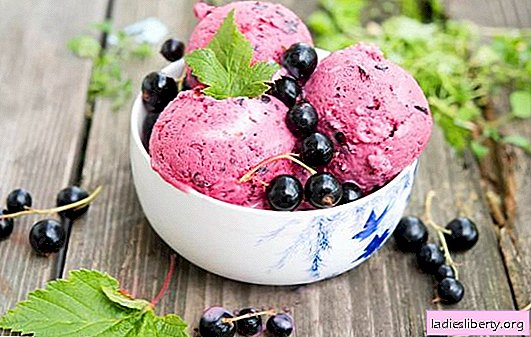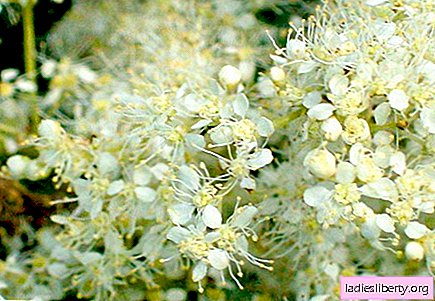
The first walks of the puppy on the street can become one of the most pleasant events of spring and summer. They give him the opportunity to get the necessary physical activity, fresh air and sunlight. Not to mention all the wonderful smells and the discovery of a new world. However, on the street kids are waiting for one of the most annoying pests - fleas. They can turn your pet's happy life into a torment: rash, irritation, and even the likelihood of catching a serious illness. This is why puppy fleas are a fairly dangerous phenomenon that requires treatment and monitoring to ensure the safety of your dog. There are many options that you can use to get rid of fleas and avoid their appearance in the future: from the usual methods of local drugs to more natural alternatives that you can make yourself.
Puppy fleas: where the baby can get infected and what are the symptoms
If your puppy has not yet gone out with you, as we wrote above, this does not mean that he is completely protected from fleas. He can get infected from his mother, from other pets, and even from you - you can bring fleas from the street on your shoes or clothes, they are safe for people and use us to move. So, one of the most obvious signs of flea infection is continuous itching and combing. Typically, the puppy will scratch its abdomen and the area behind the ears with its hind paw. He will also try to nibble his tail. Hair loss is another sign of fleas. Especially if they torment the puppy for a long time. If you see similar signs of anxiety in your puppy along with intense scratches, examine him. Using your fingers or a special comb, separate the coat where the puppy often scratches. Pay attention to the area under the tail, groin and stomach. It is unlikely that you will see adult fleas, as they are very fast and active. But you may notice very small black and white spots on your dog’s skin. Black spots are flea feces. White ones are flea eggs.
Puppy fleas: environmental treatment methods
· Wash your puppy’s bedding, carpets, and other items with hot water and detergent.
· If you live in warm regions, and your puppy spends a lot of time outdoors, you must ensure constant control of the vegetation in the yard: the grass should always be cut short and treated with a solution of beneficial nematodes. It is a natural product that does not harm animals and is readily available at pet stores and gardener stores.
· Wipe dust off furniture and other areas of the apartment using diatomaceous earth, boric acid or sodium stearate. These are safe and non-toxic powders that are effective in killing fleas.
· In cold regions, fleas usually disappear in November, but return with the onset of spring. Therefore, if you use the above flea control products, you can take a break in the cold season and resume processing when warm weather sets in.
Puppy fleas: methods for controlling parasites on a puppy
· Bathe your puppy using veterinary approved shampoos. As a rule, herbal ingredients are safe and non-toxic (for example, aloe vera, tea tree oil, lavender oil and other essential oils). Make sure you read the product label carefully and use it correctly.
Shampoos and sprays containing natural ingredients diluted with water can also be used to treat puppy's hair to soothe flea bites and kill parasites. These include: sage, lemon, cedar, eucalyptus, grapefruit, etc. These natural mixtures can be prepared at home and sprayed to the puppy. Dilute a few drops of oil with water and use with a spray bottle.
· Diatom powder can also be mixed with dried eucalyptus, rosemary. And apply on the puppy's hair. These herbal compositions are natural flea killers. They can also be applied to carpets before cleaning and left overnight.
· When buying a chemical product for treating puppies, choose IGR or insect growth regulators that act on fleas at all stages of their life cycle (larvae, eggs and adults). A single use of these drugs is effective for several months and have residual effects that provide better protection against parasites.
Puppy fleas: home remedies
More and more people are beginning to look for alternative flea control methods, as they prefer to use safer and non-toxic products for their beloved pets. Here are some of the most effective ways you can use it if your puppy has fleas without jeopardizing the baby’s health. The great thing about these methods is that they can be used in combination with each other without any harmful side effects.
· Collar. If you do not want to use various ointments and somehow affect the skin of the dog, you can create your own flea collar from scratch. It works much longer than ointment and smells great. The first thing you need is a bandana or collar that your dog usually wears when he goes outside. Mix one to three tablespoons of water with three to five drops of cedar or lavender oil. Using a pipette, apply the mixture to several points on the collar. The mixture can be reapplied once a week to maintain a protective barrier against fleas.
· Tonic for drinking. You can also help your pet by making a light drinking tonic that helps in the fight against fleas. For every 10 kg of dog weight, add half a teaspoon of apple cider vinegar to drinking water. Digestion of vinegar is secreted through the skin and makes your dog completely unappetizing for fleas. You can also spray the diluted mixture directly onto your pet's skin.
· Lemon juice: fleas are known to hate the smell of citrus fruits, so why not give them a reason to stay away from your dog? Add slices of freshly sliced lemon to a pot of boiling water. Turn off the heat and leave it overnight. Moisten a sponge and wipe the pet's hair, then comb it thoroughly. It can be used as often as you need without harming the puppy's health. Lemon juice can also be added to regular shampoo.
· Brewer's yeast / B vitamins added to your dog’s food can stimulate the immune system and repel fleas. You can add half a teaspoon of brewer's yeast or 50 mg to your puppy's food and mix thoroughly. The digestion process makes the pet less attractive to both fleas and ticks.
Puppies have fleas - a problem that needs to be taken very seriously. Take care of your puppy's health in order to avoid sad consequences in the future.











